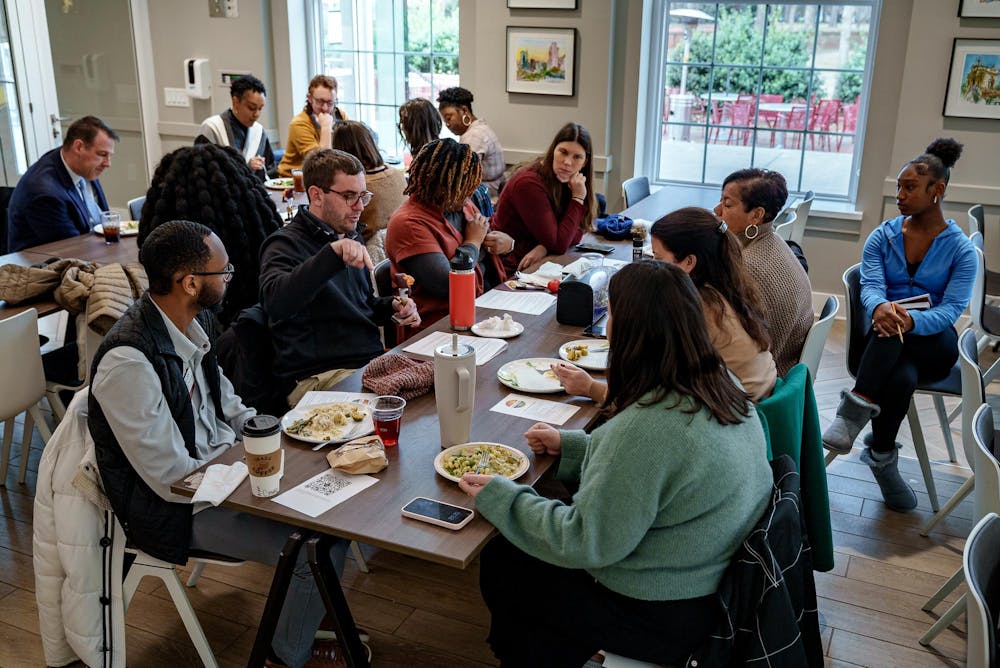The Office of Inclusive Excellence and Education Development and the Center for Race, Ethnicity, and Diversity Education hosted their annual Racial Day of Healing Luncheon in McEwen Dining Hall. This event was created to give the Elon community a chance to hear and learn from each other's stories of racial differences.
Jameka Pinnix, assistant director of Inclusive Excellence Education and Development, said she hoped for this event to bring educational awareness and relationship building to Elon.
“Everyone doesn't know this event is for everyone – it can be assumed in so many ways, but this isn't just about racial healing, it’s also racial education,” Pinnix said.
Director of the OIEED Carla Fullwood emphasized the importance of creating a space for open dialogue and reflection. Attendees were encouraged to share their personal stories, engage in active listening, and participate in activities designed to deepen their understanding of racial equity and healing. To foster better connections, attendees were encouraged to bring an object of personal significance and share its importance to their identity. The items shared ranged from cherished photographs and cultural artifacts to unique objects like giant starfish.
Guests were given prompts that centered around their experiences with racial harm, their definition of racial healing, and how they envision creating a more inclusive and equitable community. One participant shared that racial harm could be seen as, “not talking about the things that happened in history.”
Vice President for Student Life Jon Dooley agreed.
“I wonder what do we not talk about, what’s not in the textbooks,” Dooley said.

Other attendees spoke about the power of addressing the problem and making students aware while in the classroom of the injustices that happen daily.
“When I think about racial harm I think about our student's mental health. Hearing about what they go through surprises me sometimes,” Interim Associate Director of the CREDE Simone Royal said during the discussion.
During the luncheon, attendees were asked, "What do you see as racial healing?" This question prompted responses such as, "To understand without getting defensive," "To offer basic respect, even in the face of differences," "To avoid speaking out of ignorance," and "To acknowledge that harm has been done."
Senior Rocque Tremaglio said the luncheon taught him a lot about the community.
"How truly powerful it is, and how everyone has their viewpoints when it comes to race and inclusion,” Tremaglio said. "I feel that me learning from other people's experiences, and learning other people's stories was extremely monumental."


